
Are you interested in a college experience for yourself or a family member with developmental disabilities? RCBC is seeking High School graduates 21-24 years old who have Developmental Disabilities! NJ passed the establishment of county college-based adult centers for transition legislation in 2022 (Bill s4211), providing grants to support students with developmental disabilities who would like to enroll in college. RCBC is starting this program in Fall 2023 and will accept up to 15 students per cohort each spring and fall. We will help provide a bridge between High School and Future Goals.
Application must be made to RCBC as well as a program-specific application. Interested students need to submit Psychological and learning evaluations, IEP or 504 Plans from High school, as well as answer the complete application. Once reviewed, candidates will be scheduled for an in-person interview to determine if the student’s goals are a good fit for the program.
Because NJ is an Employment First state, students are expected to participate in Career-related assessments and Internships as well as attend improvement and college-level classes. Some may choose to earn a Certificate in Professional fields, while others may be interested in pursuing a degree. College campus events, clubs and activities will be open to all Center For Adults in Transition students. Peer Mentors will help support and guide each student for at least the first year of the program.
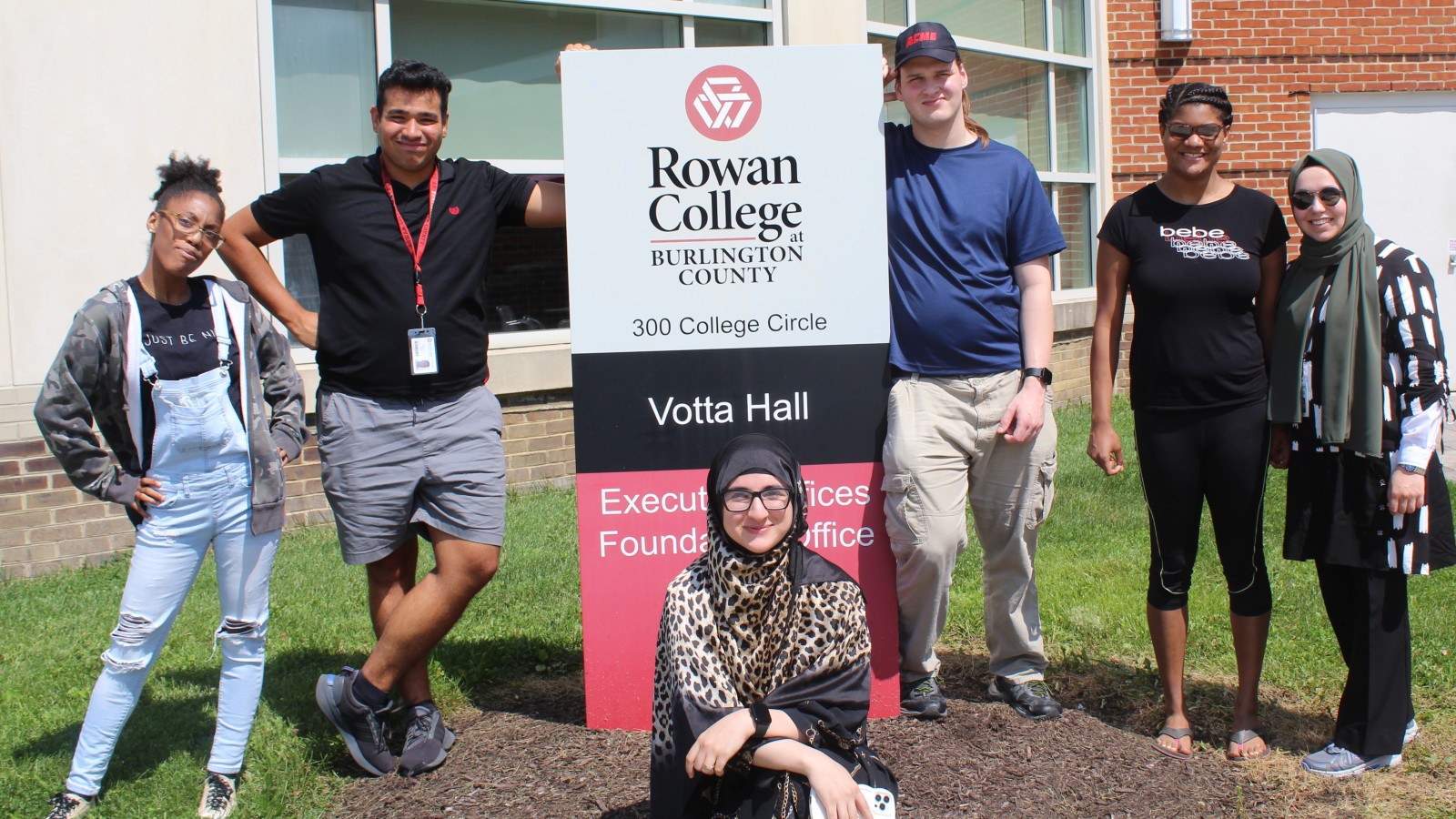
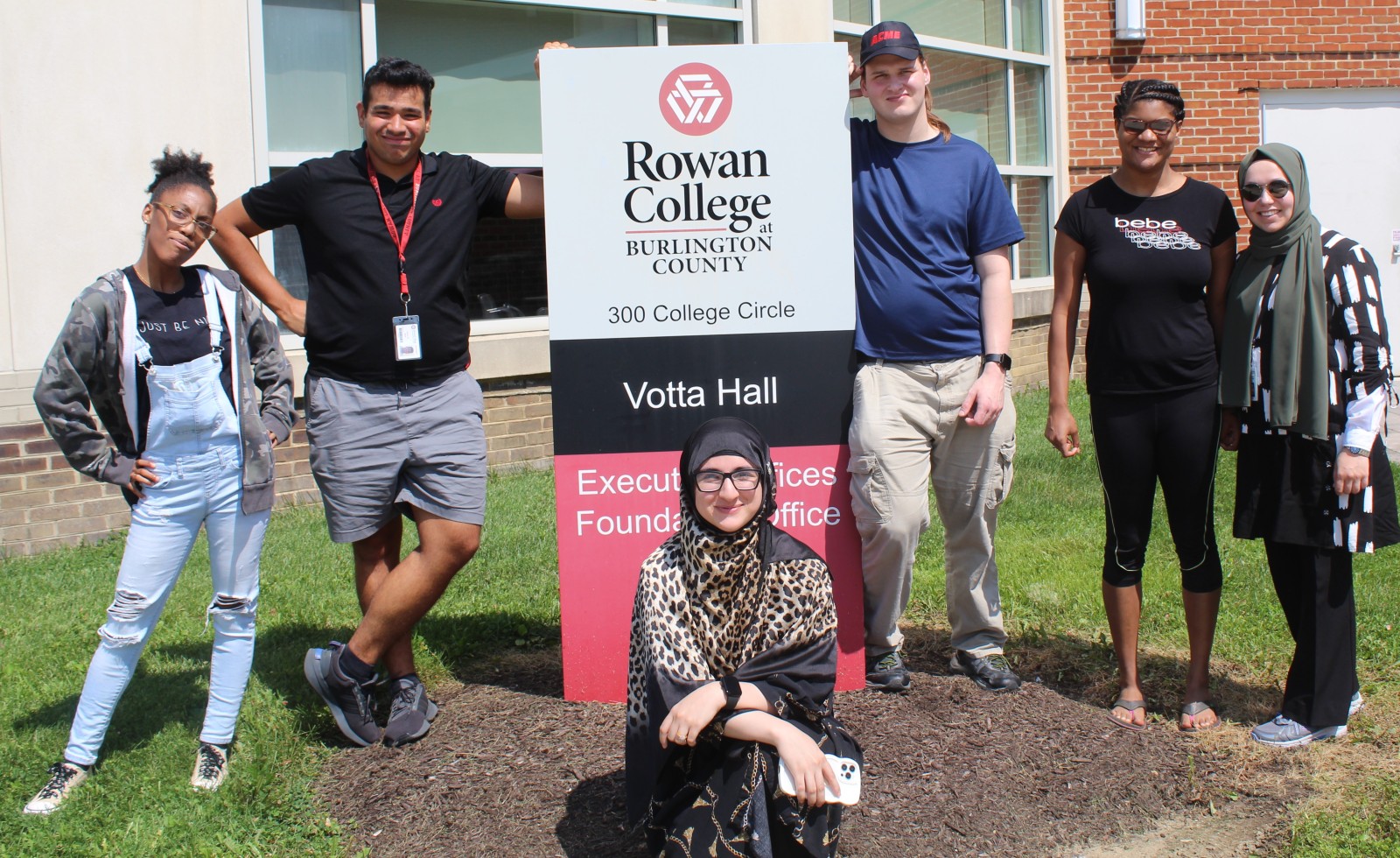
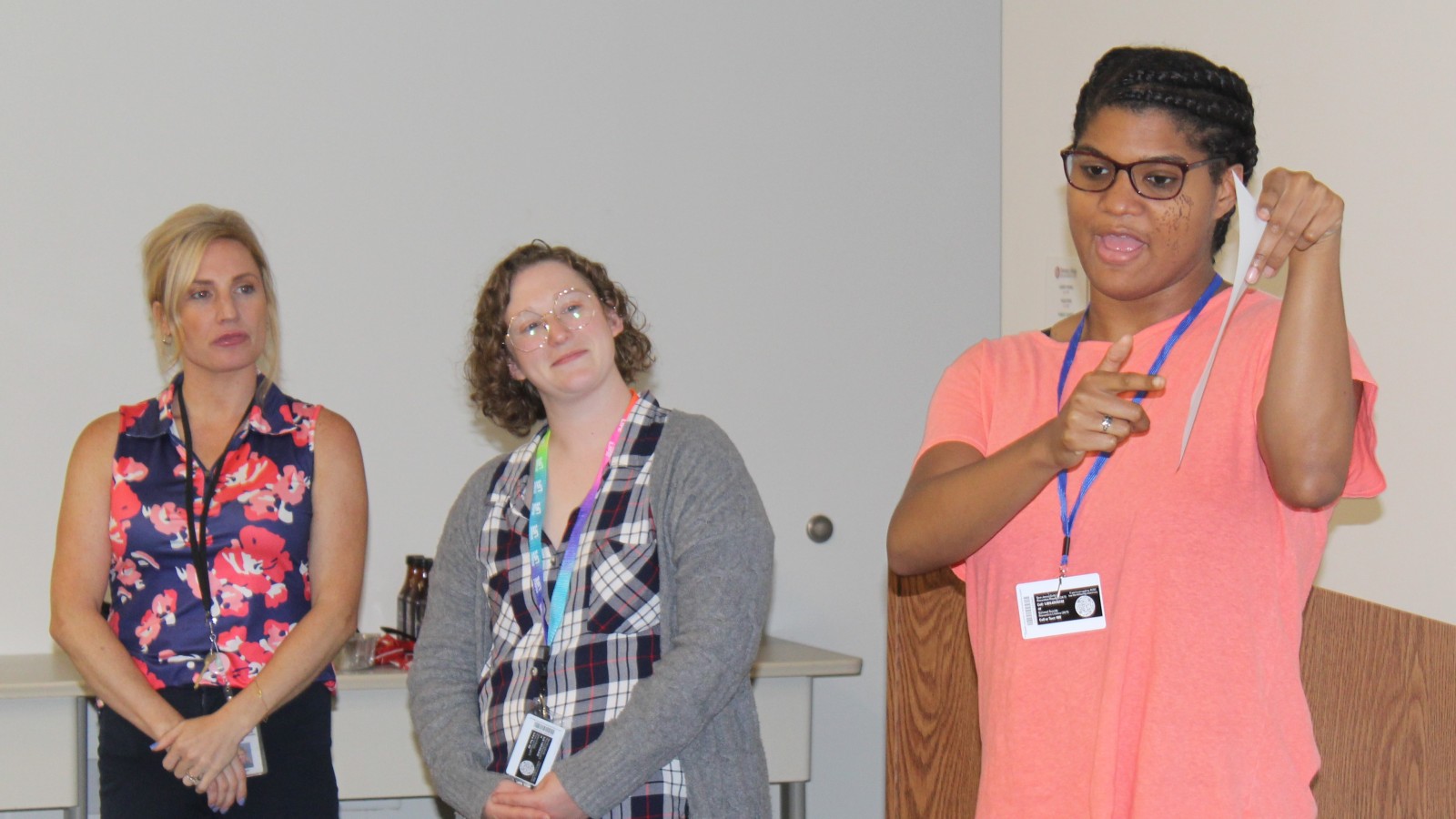
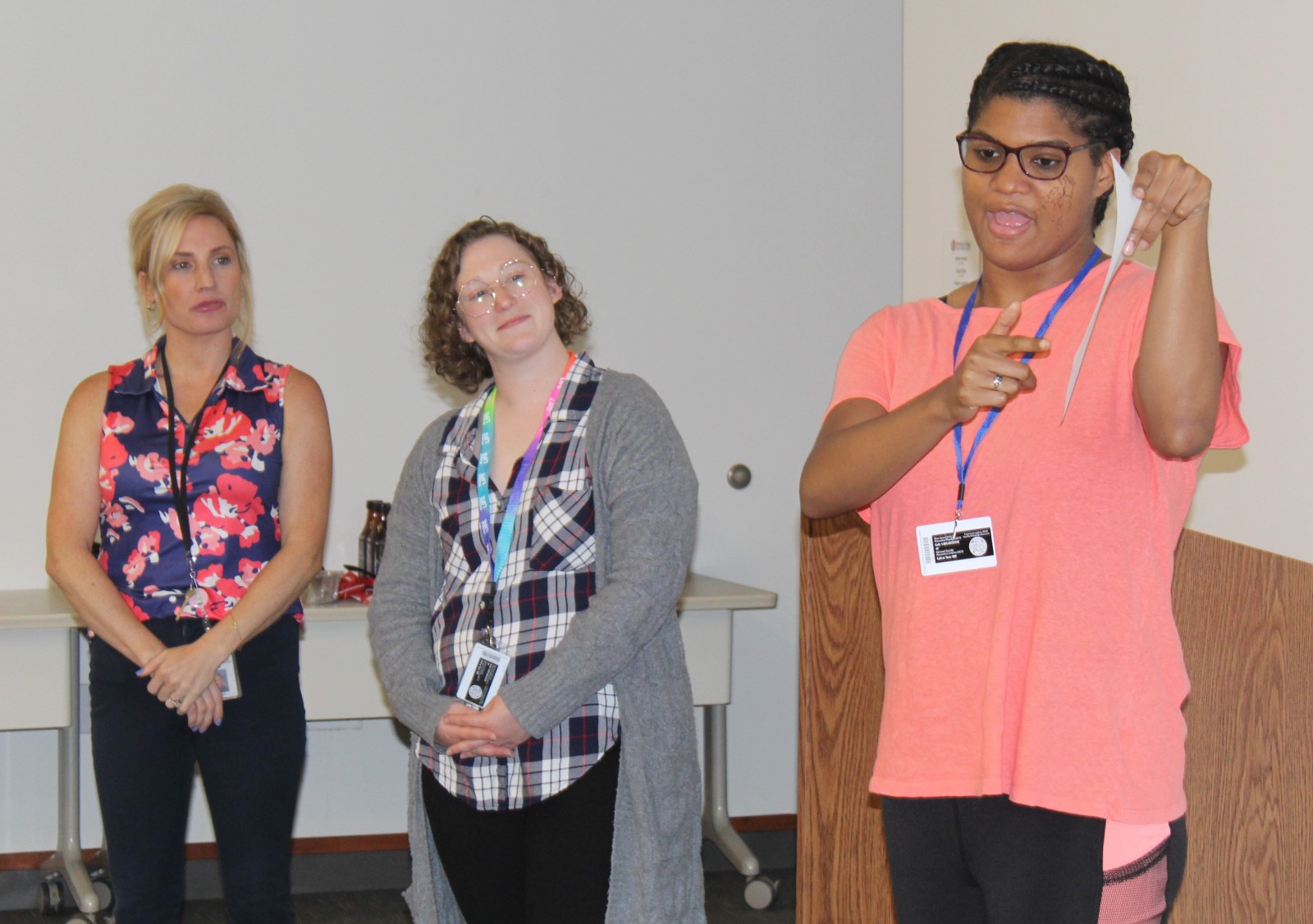
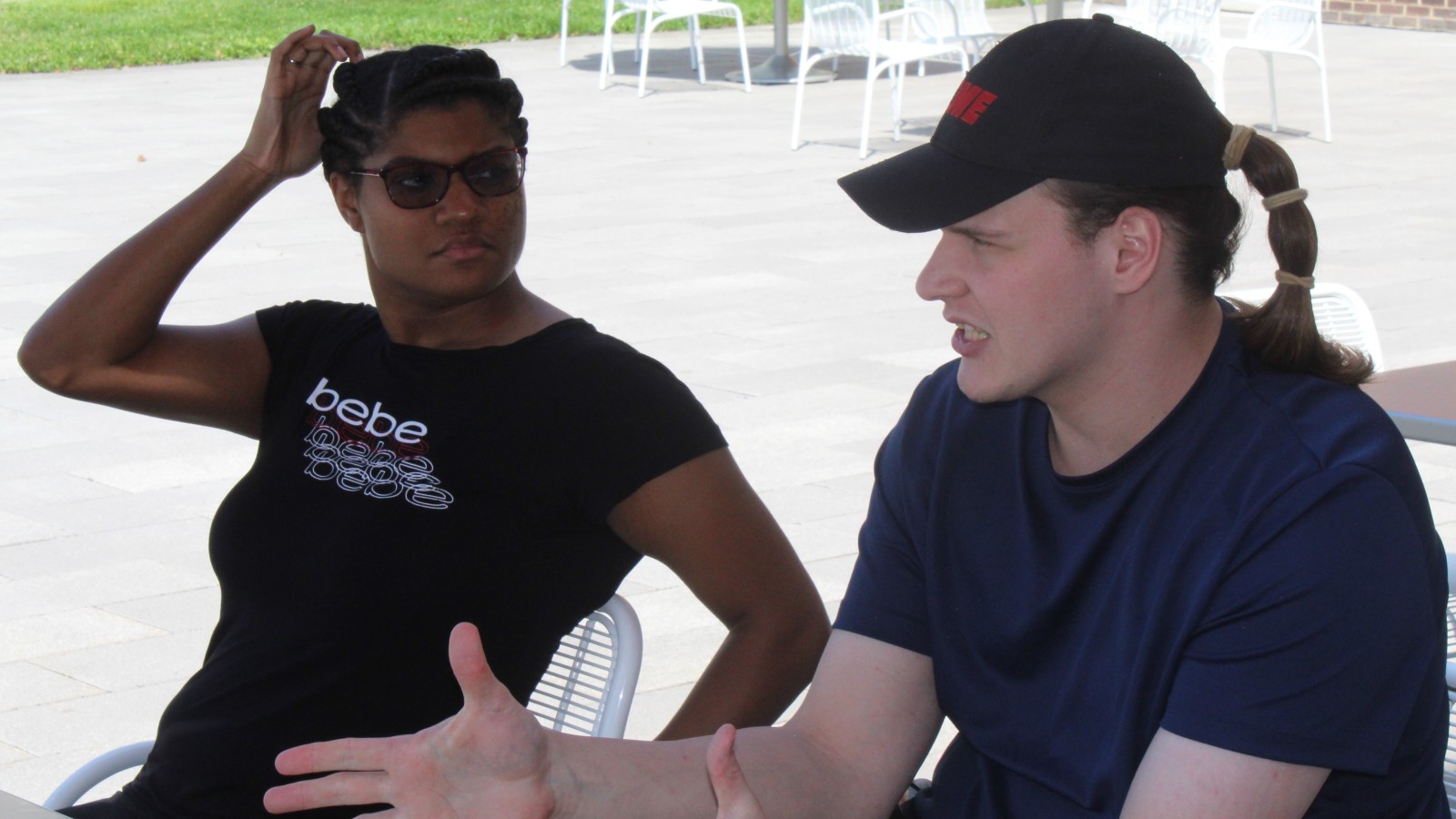
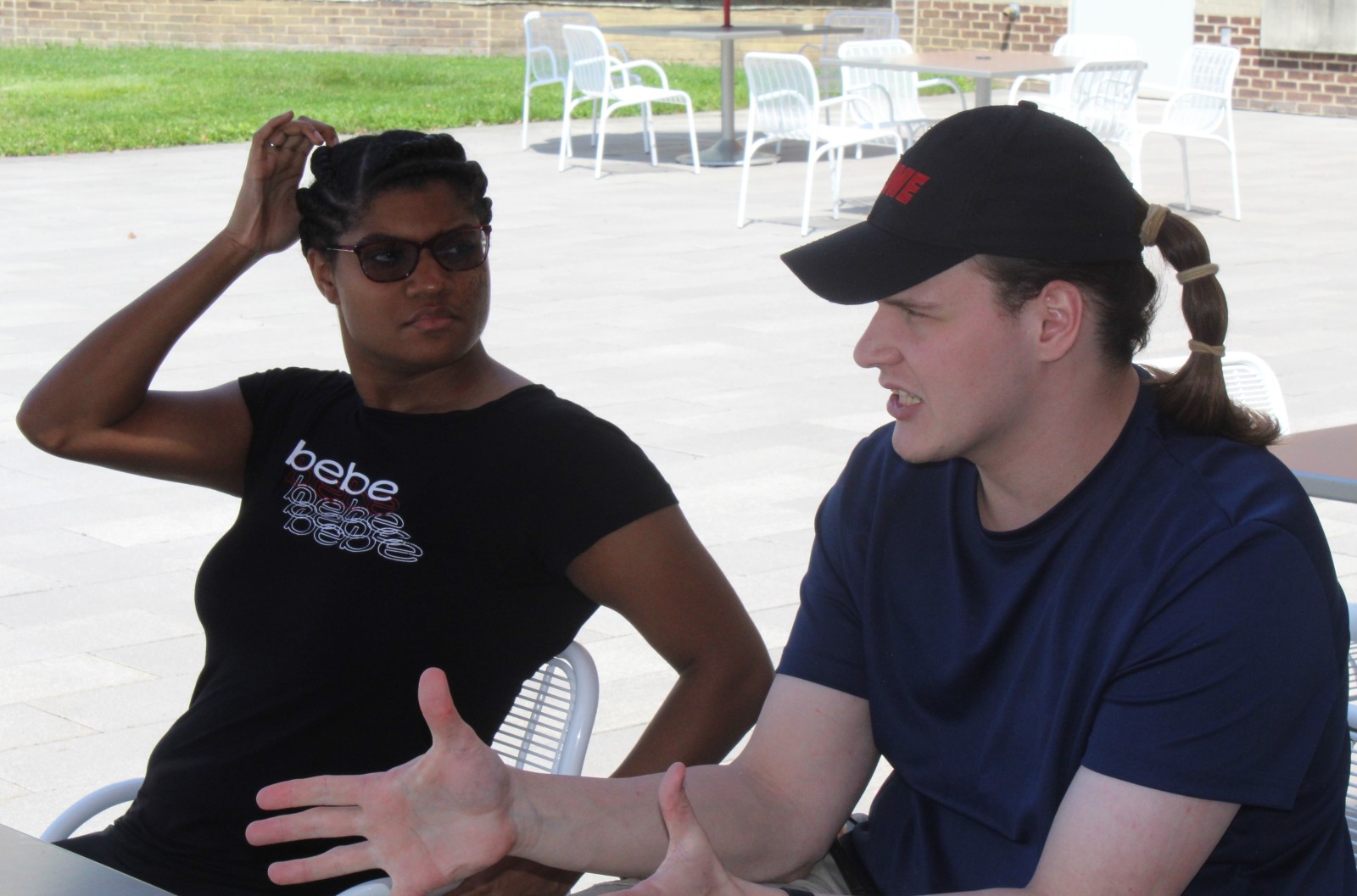
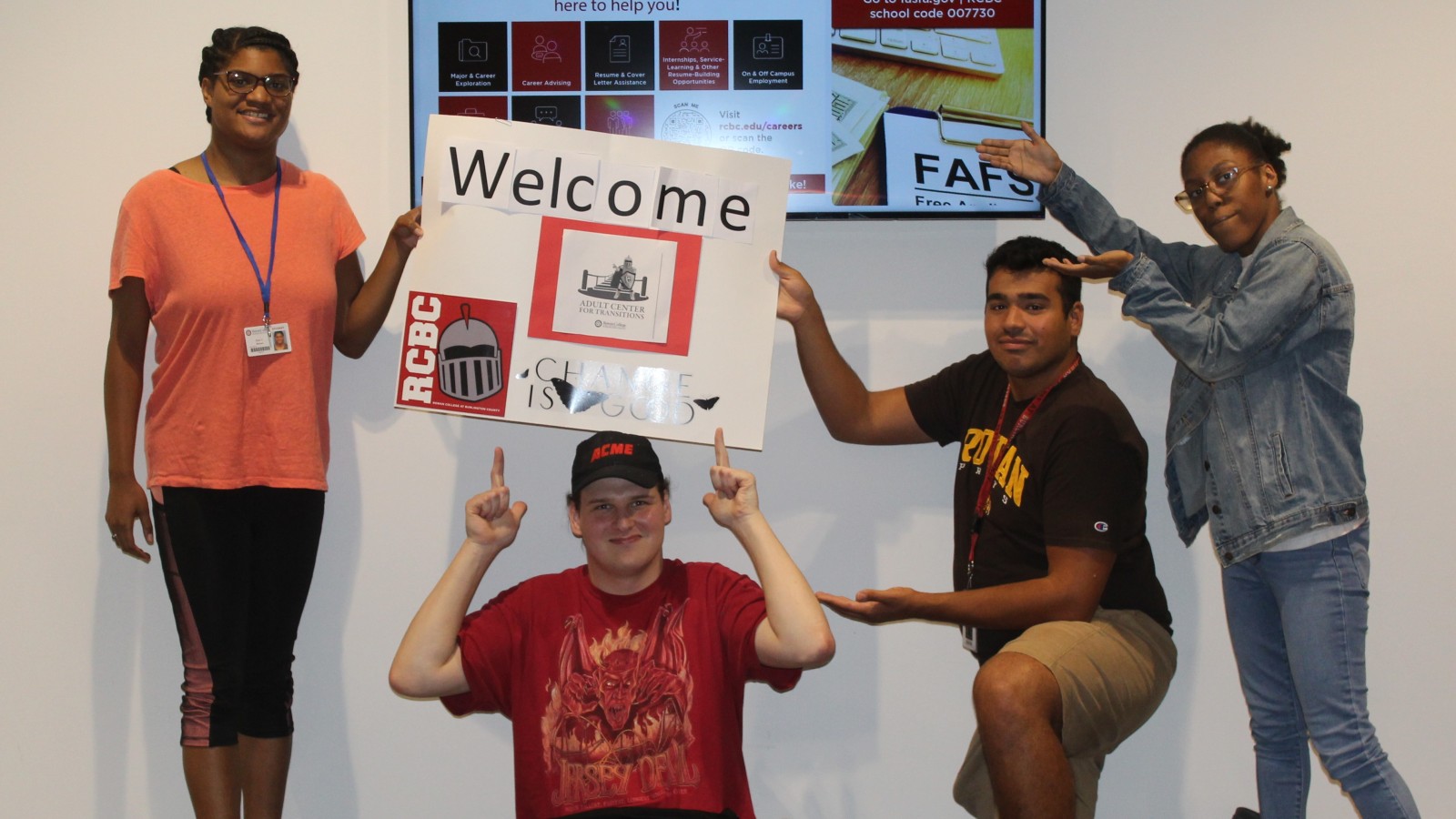
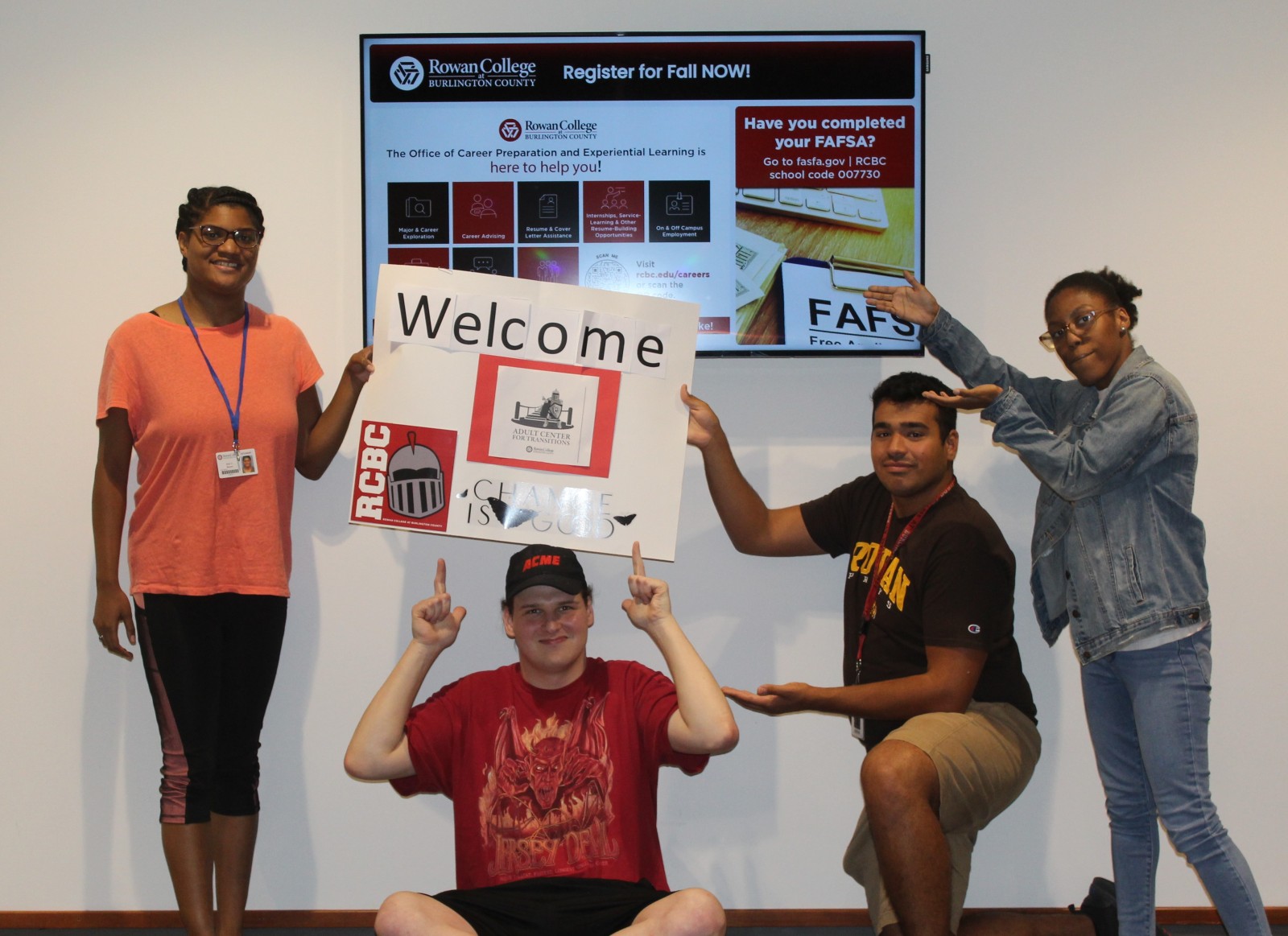
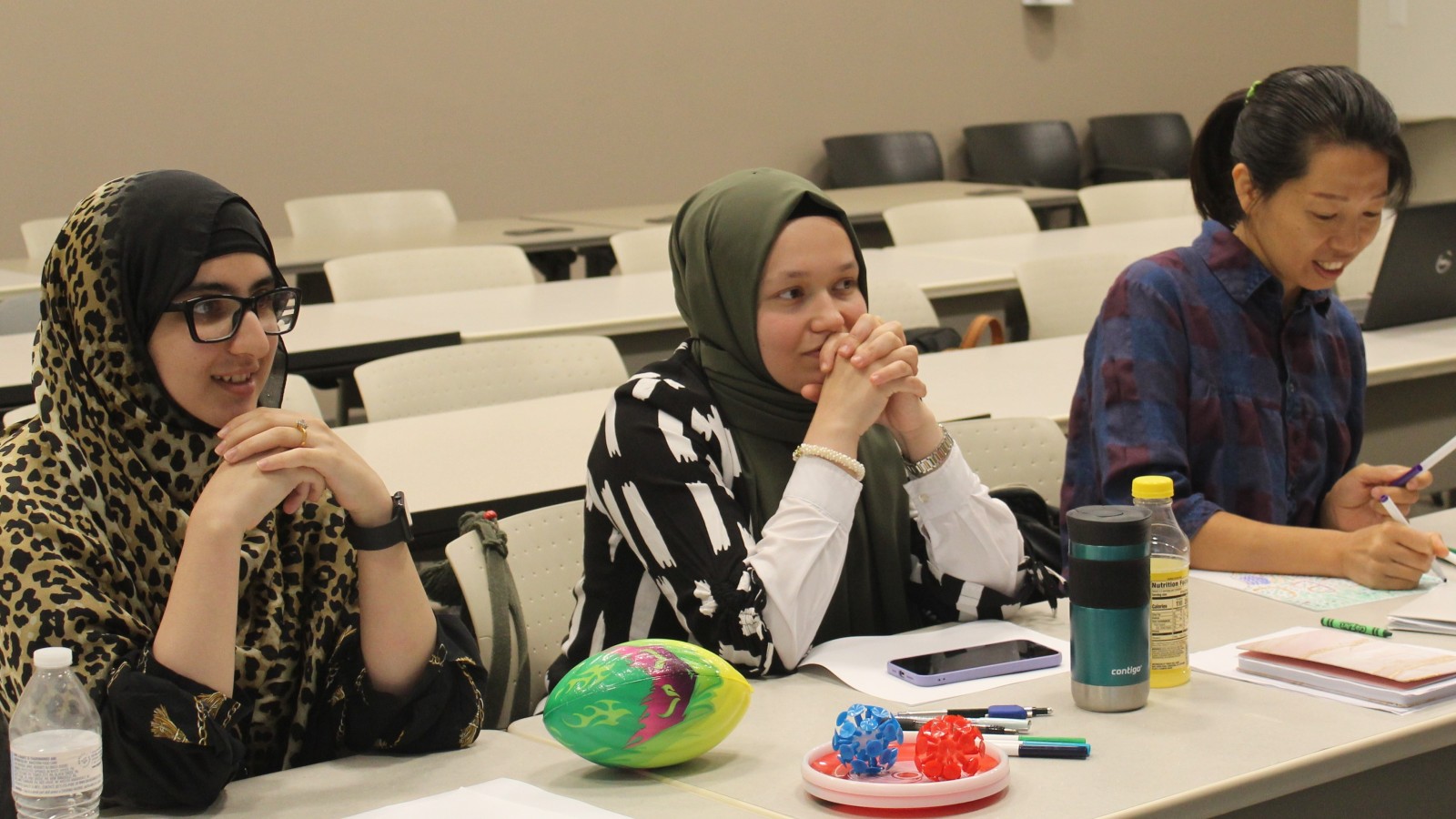
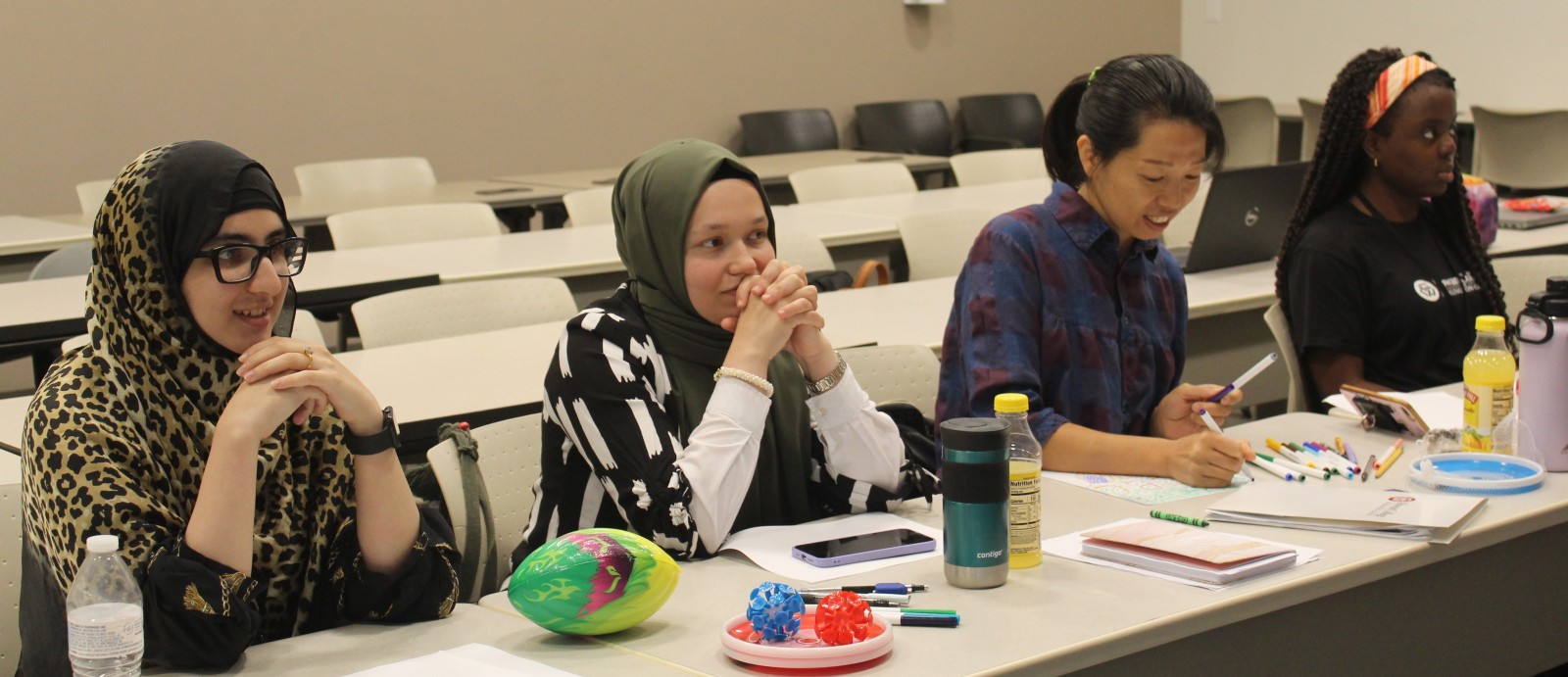
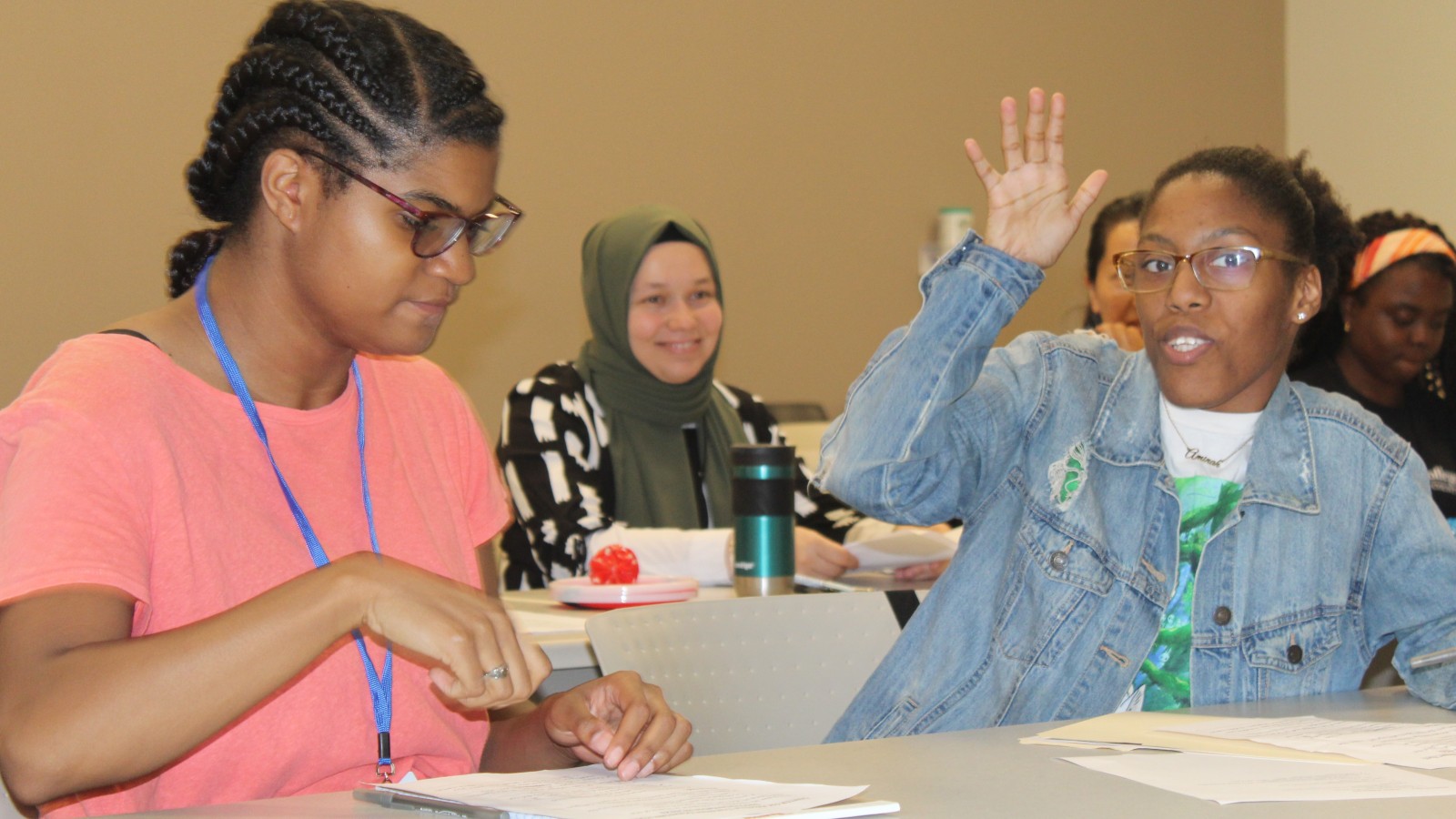
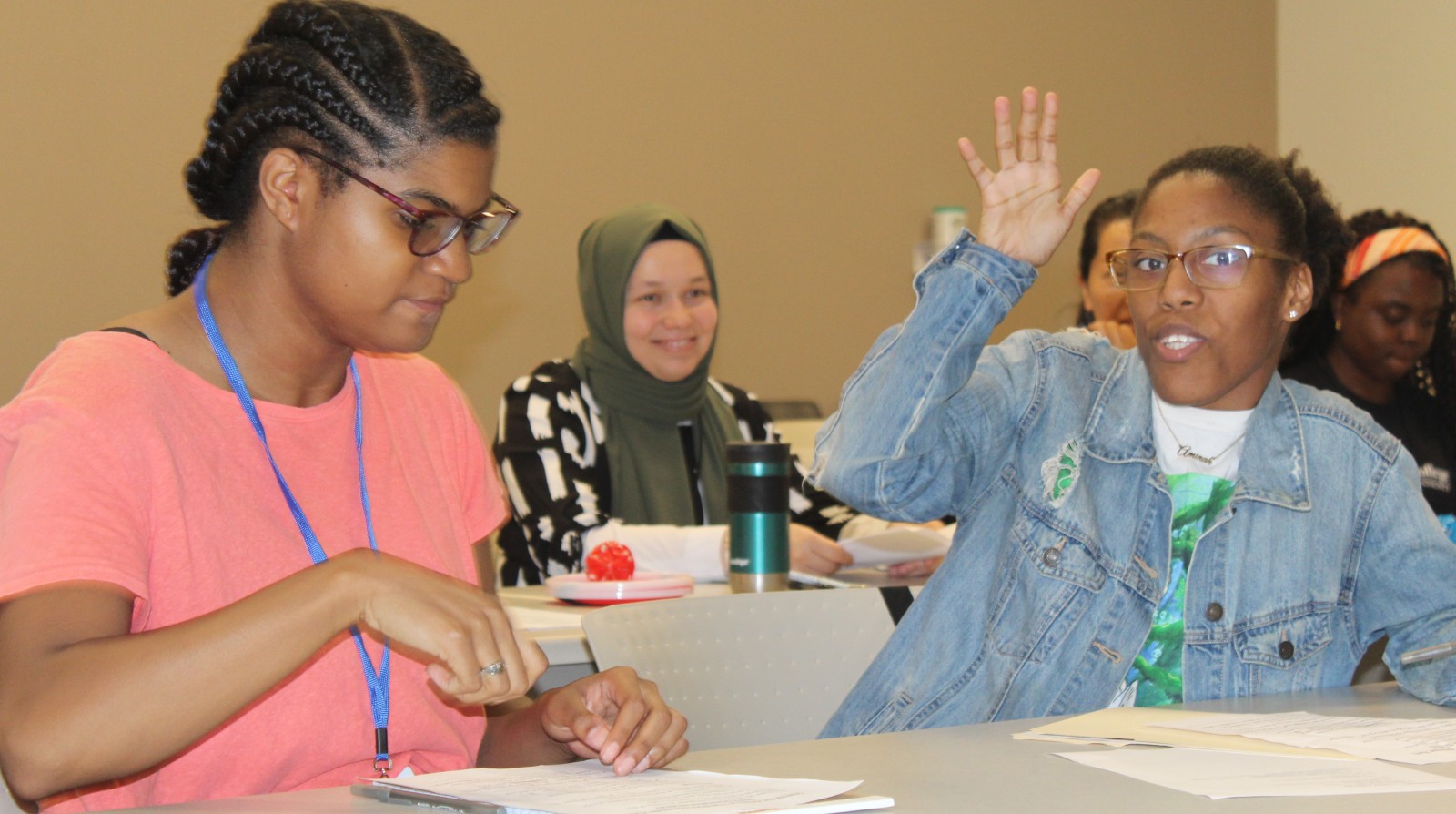
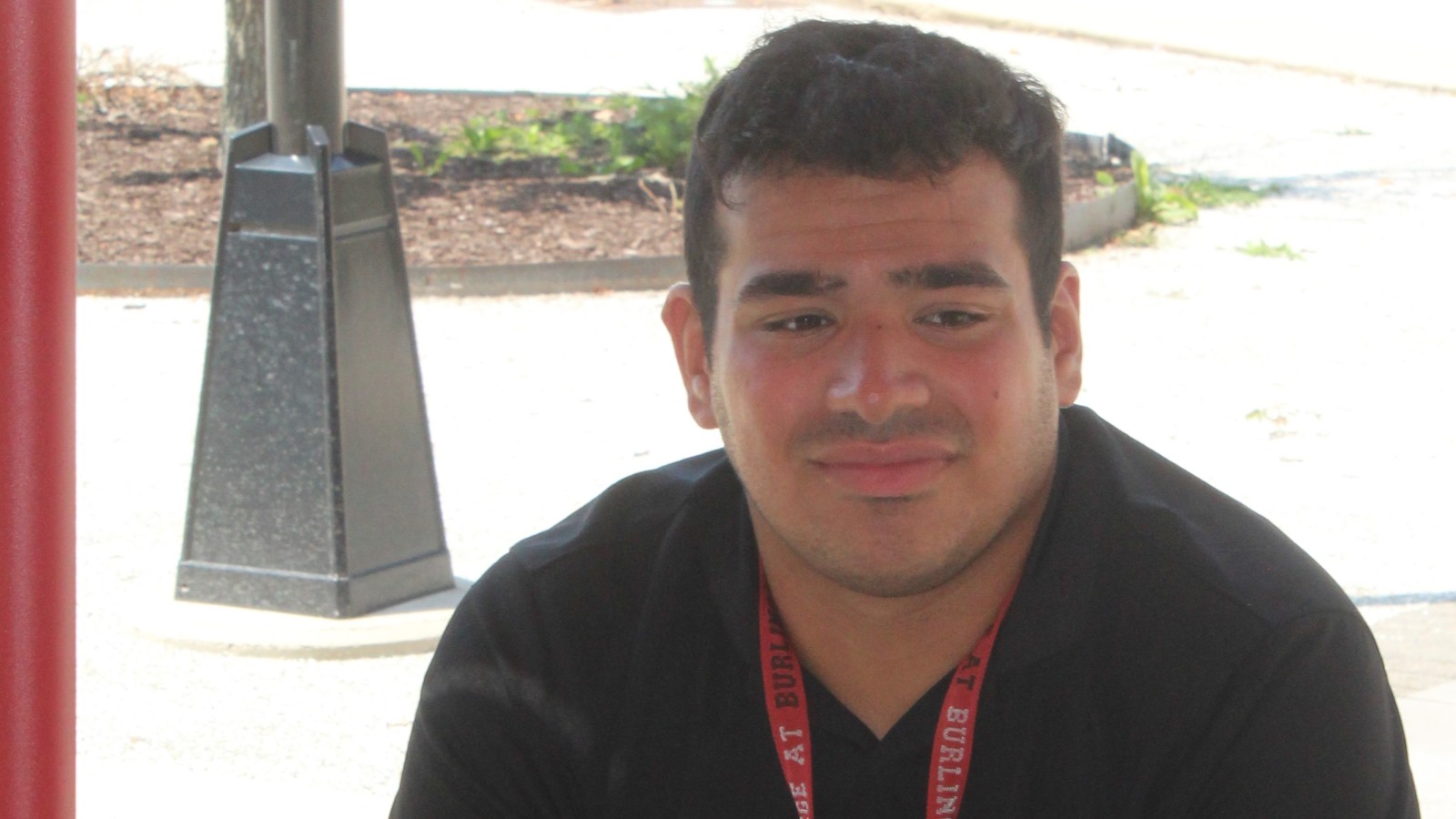
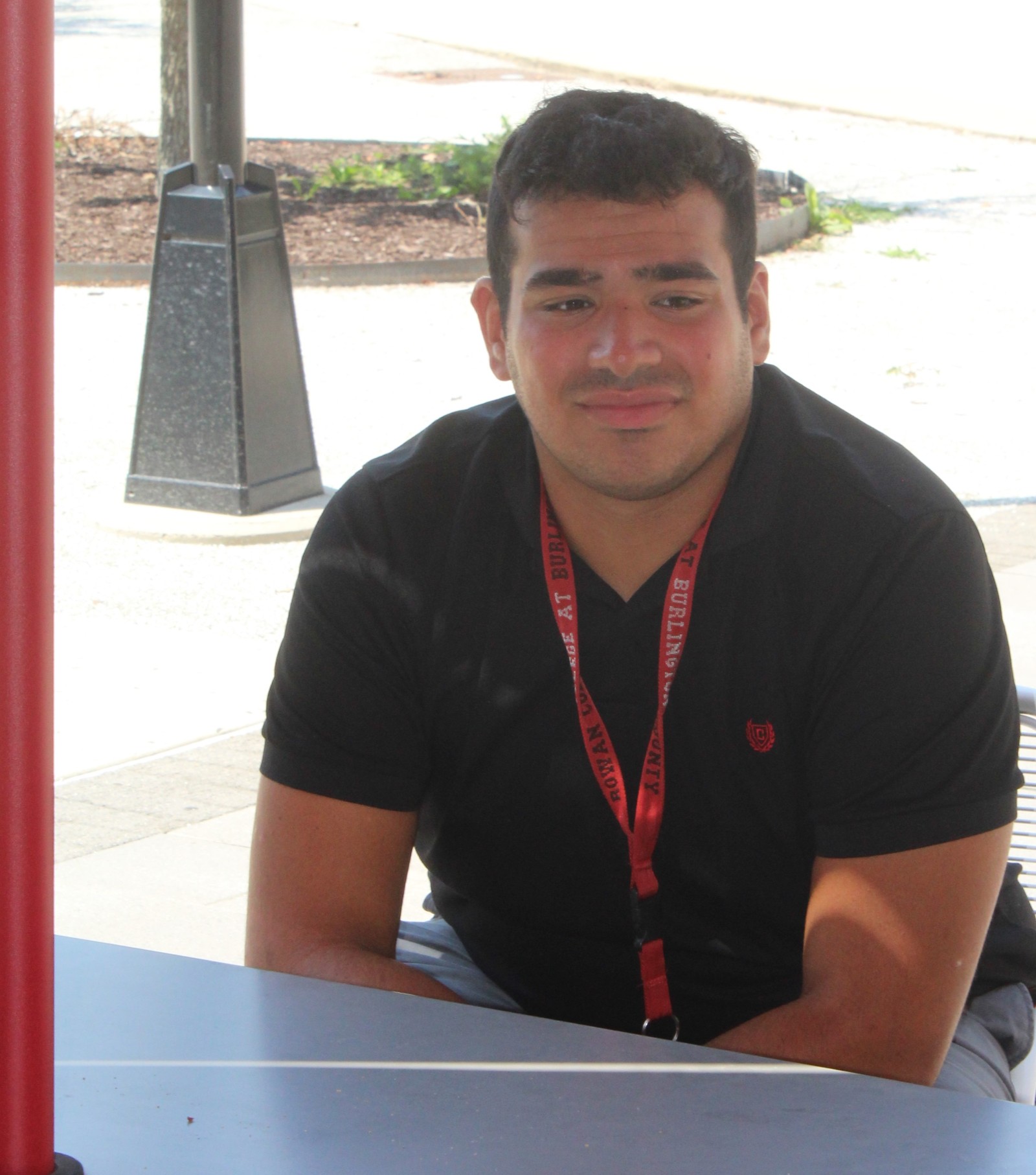
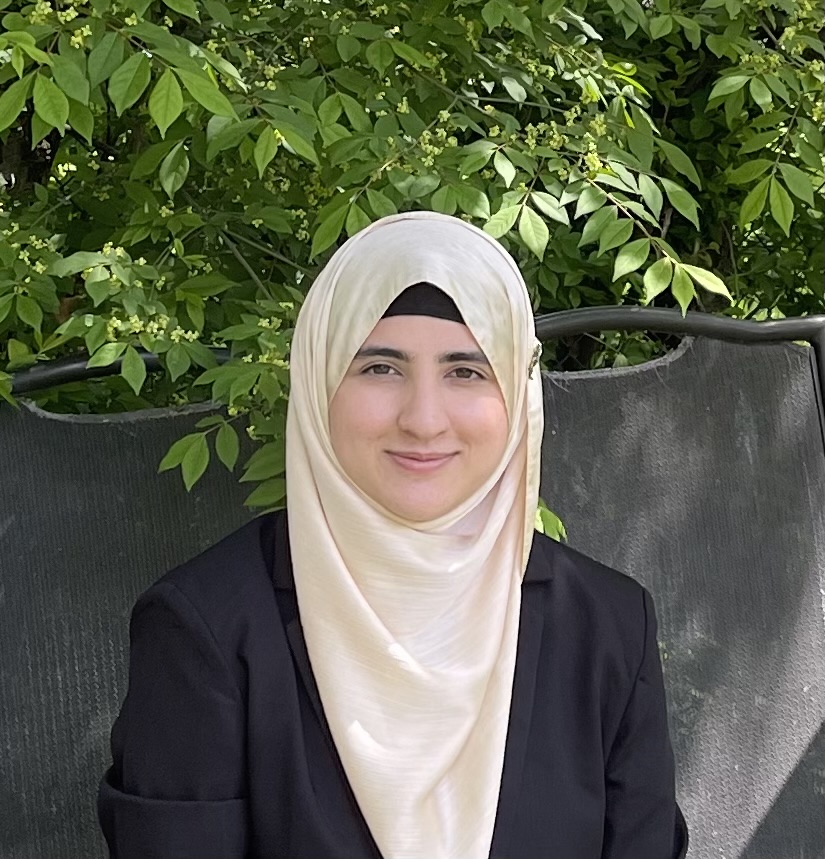 Peer Mentor: Faiza Bashir
Peer Mentor: Faiza Bashir
My career goal is to become a Biology Teacher. Peer Mentoring will be immensely beneficial for me in becoming a Teacher. I will be guiding students through this program who may need help with their studies and personal growth.
Therefore, this experience will develop my teaching skills and will help me understand how to communicate effectively. Additionally, it demonstrates my commitment to education and helping others.
As part of a state grant funded program, young adults 21-24 who have any developmental disabilities and have graduated high school are encouraged to apply. Interested individuals need to complete an application including IEP, psychological, learning or other evaluative documents as well as two letters of recommendation to be considered. From there an interview is scheduled to discuss their interests and determine if they are a good match.
Application Deadlines
* Spring - November 3
* Fall - June 16
The framework includes:
* First year introduction to college class
* Psychology 101
* a Social Skills class.
Students will be registered RCBC students who are encouraged to join clubs and or other campus activities alongside peers, and will have a trained Peer Mentor who will assist in the adjustment process to being in college as well as bridge our knowledge about how that student is doing on campus.
Following semesters will include:
* Financial Literacy
Career Services course - resume creation and interview skills/testing to determine strengths, aptitudes and interests for internships which will follow
* Students will take at least one course per semester of interest.
* Public Speaking and Communication class
The choice of auditing or taking for grade will be given.
Tuition must be paid each semester to remain in good standing. Students are encouraged to apply for financial aid by completing a FAFSA application. If an application has not been made to DDD (Division of Developmental Disabilities) for adult services, now is the perfect time to do so. (see link):
Employment Support may also be available through the Division of Vocational Rehabilitation Services.
https://www.nj.gov/labor/career-services/special-services/individuals-with-disabilities/
- Open to 21-24 year old students with Developmental Disabilities who have
graduated High School; Under OSHE grant based on 2022 law passed - Cohorts of up to 15 students per semester
- Latest IEP and evaluation reports need to be included with ACT Application
- Two letters of Reference required
- Students will participate in classes with peers by auditing or for credit if desired.
- Also Social Skills/Self Advocacy, Financial Literacy, Experiential Learning, 2
Internships and have support of a Peer Mentor
- Also Social Skills/Self Advocacy, Financial Literacy, Experiential Learning, 2
- On campus clubs and activities will be encouraged for each student to choose
from - Classes typically between 8 am - 5:30 pm Monday through Thursday
Students will be expected to submit assignments and take tests/exams alongside peers to determine how much they have retained (no grade will be assigned if auditing). First Year Experience class/Orientation before start of semester will assist with adjustment to college environment
Application Deadlines:
Fall: June 16
Spring: November 3
Interviews will be scheduled after application received/Student responsible for tuition cost. Individual Support Plan may be able to help pay we strongly recommend each family complete the FAFSA form (Federal Financial Aid) to determine what tuition assistance or other resources may be available.
* Students must also register for RCBC to obtain student identification.
*Certificate programs and degrees may be an option if students wish to pursue
Contact Pat Gerke at pgerke@rcbc.edu or 856-242-5261, ext 2961 with questions.
This publication was produced in partnership with OSHE as a part of the County College-Based Center for Adult Transition Grant.
Pat Gerke
pgerke@rcbc.edu
856-242-5261, ext 2961

